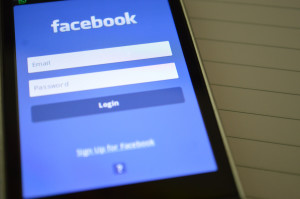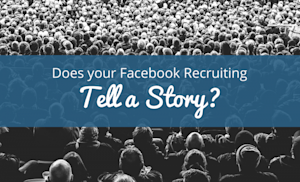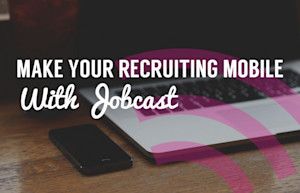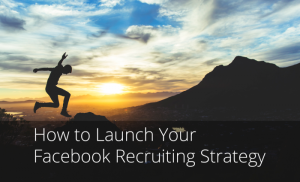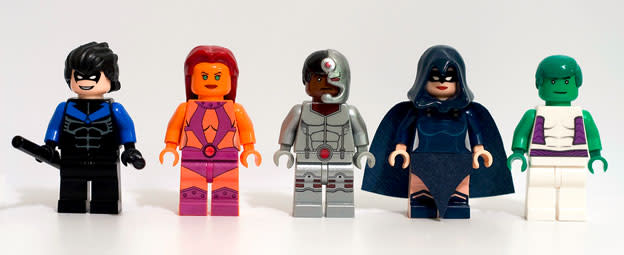
Diversity versus Inclusivity in Social Recruiting
I think social media is great for recruiting. Duh!
.. and apparently I also think the 90s are back.
I blog for a Facebook recruiting app, so of course I think social media is great for recruiting. I also think that all of you should integrate at least some social networks into your recruiting strategy. Social recruiting is effective, social recruiting is industry standard, and social recruiting is sexy… if you’re into that sort of thing.
What social recruiting is not, is free from all of the strings and regulations of old school hiring methods. You may be able to target candidates based on specific demographics via Facebook Ads, but you also have to be aware of the possible backlash that this kind of targeting may have.
Mishandling your social recruiting policy can lead to a diversity disaster.
Millennial candidates are all the rage. The HR blogosphere would have you believe that all of your social recruiting should be aimed at attracting this generation of candidate. Just see my previous two feature articles for evidence of this, and yet, as much as engaging Gen Y is valuable, it shouldn’t get in the way of fostering inclusivity. Being cautious about diversity in recruiting isn’t just important for legality’s sake *cough, Abercrombie and Fitch, cough!*, it’s also an important part of making your employer brand attractive to potential hires.
To quote another millennial HR blogger:
“Inclusion will always be more attractive than exclusivity”
‘Always’ is a wee bit of an overstatement, of course. Try walking into your favorite local hipster coffee shop wearing sweatpants and carrying UFC 360 magazine; it’s enough to make you run to the nearest American Apparel and buy the skinniest jeans they have on offer. This reaction, caused by an intense atmosphere of exclusivity, is what makes the cafe appealing to many of its customers.
Recruiting, though, is not a hipster cafe.
When posting a job, when interacting with potential candidates, and when promoting your company culture, inclusivity will get you more applications. And it will keep legal issues at bay — what’s not to like?!
Now, that’s not to say that you cannot use targeting to your advantage when recruiting. If you create a Facebook Ad with the intent of it appealing to, or reaching out to, a target demographic, it does not mean that your social recruiting is exclusionary. Similarly, when a company makes a commercial that aims to appeal to youth, it doesn’t mean that they don’t want older people to buy their product. As we all know, most companies just want people buying their product, irrespective of age, gender, or hair color.
Understand What Diversity Really Means
Diversity isn’t just about gender, race, and religion. If it were, then there really wouldn’t be a lot of benefit to cultivating a diverse team of employees, other than meeting industry standards. I know some people think that that is all that diversity is about (again, Abercrombie!), but their opinions are wrong! If you have a racially diverse team, but everyone on that team has the same life experience, values, interests, and opinions, then your team is not diverse.
Differing opinions lead to discussion, which leads to ideas, which leads to innovation, and improvement.
Having an inclusive workplace, made up of employees who are different, but are all working towards the same goal, together, as a team, will benefit your company.
So, how do you use social media to promote inclusivity and help your company meet diversity requirements? That’s a great question!
Now that you have a groundwork for understanding how social media and diversity co-exist, we can move on to practical applications. Next week, we’ll explore exactly how you can put some of these ideas into practice, and use social inclusivity to better your company, your industry, and the world. So basically, we’re going to be using the X-men metaphor that I so dearly love. I’m pretty excited about it!
Until then I will leave you with an inspiring quote from Dr. X himself:
“My name is Charles Xavier. I am a mutant. And once upon a time I had a dream… of a world where all Earth’s children, both mutant and baseline human, might live together in peace. This isn’t it. This is today’s reality”
I ask you to ask yourself, “am I really reaching enough mutants?”
